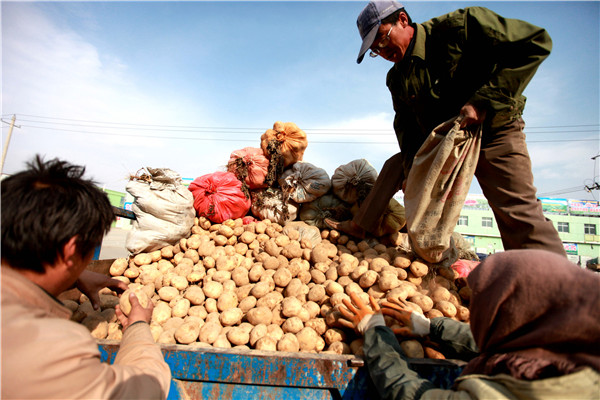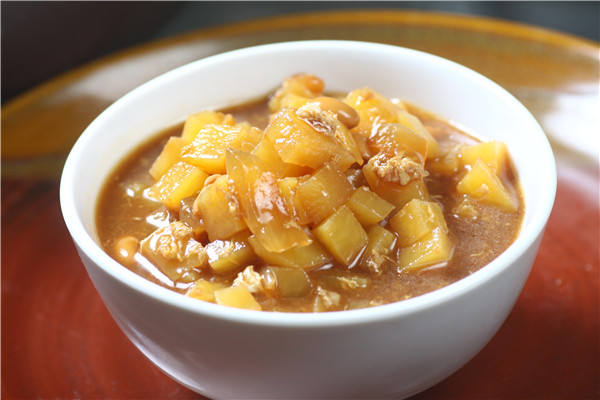More Chinese taking to tubers
China Daily | Updated: 2018-03-22 08:10

As a fan of potato flour buns, Li Juanjuan likes to frequent a small bakery in Dingxi, Gansu province.
"A toasted potato bun is 2.5 yuan (40 US cents), only 0.5 yuan more than the regular ones, but they are more chewy and nutritious," Li said.
Potato buns are among the various potato-based versions of traditional Chinese offerings, including fried dough twists and mooncakes, sold at Ma Xiaojun's stores.
Ma said that foods made from potatoes are more popular than before, but the prices are slightly higher.
The changes have come about as China began boosting the total potato cultivation acreage, making the tuber one of the country's top staples to better ensure food security under the pressure of dwindling farmland, water and labor assets, among other issues. According to the Ministry of Agriculture, China will have more than 6.67 million hectares of potato planting areas by 2020.
"Potatoes grow well, are easily planted and stored, and boast rich nutritional content," said Li Xuewen, an official with Dingxi's potato industry office.
He pointed out that the average potato contains as much protein as an egg, and 10 times more vitamin C than an apple.
As the government campaign deepens, more companies like Ma's are taking a bigger slice of the market.
Dingxi, a leading potato-growing base in Gansu, has 15 potato-based food processing manufacturers and 22 production lines, with annual production capacity exceeding 120,000 metric tons.

In 2017, Ma's four potato food shops registered annual sales revenue of more than 3 million yuan. Jupeng, a halal food company in Gansu, exported 82.2 million yuan in foodstuffs made of potatoes to the Middle East alone last year.
The booming potato industry is also benefiting farmers.
Li Keyi, a farmer in Dingxi, said that in the past an irregularly shaped potato could not fetch a good price, and would be used to feed livestock or even discarded.
"But now such potatoes have a place in the market thanks to the rapid development of the potato-processing industry," Li said.
Since 2015, China has selected more than 10 potato varieties suitable for processing into foodstuffs, and developed more than 300 potato-based versions of such foods.
"Eating potatoes can help Chinese form healthier dietary habits and ensure food security," said Zhang Hong, a researcher at the Chinese Academy of Agricultural Sciences.
Xinhua
























